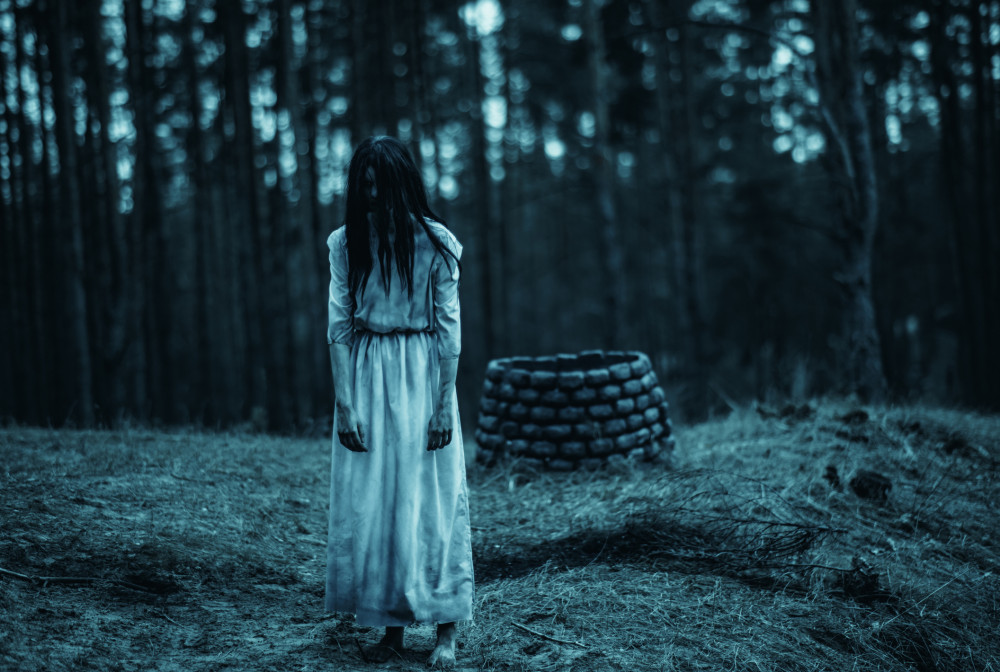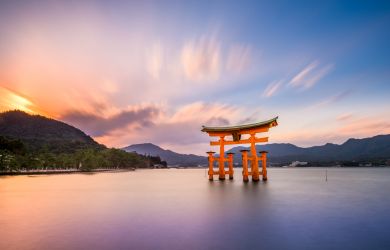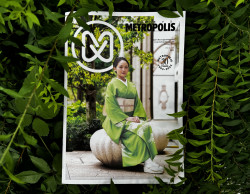
October 29, 2024
10 Japanese Horror Movies to Watch
Eerie films to haunt your nights this spooky season
If you’re ready for some spine-chilling experiences, here are 10 Japanese horror movies to watch that will make you think twice before turning off the lights.
Japanese horror movies have a distinct way of getting under your skin—through eerie atmospheres, unexpected twists, or deep psychological dread. What sets them apart is how they often blur the line between the supernatural and reality, making even mundane settings feel like a potential nightmare.
10 Japanese Horror Movies to Watch
1. Ringu (1998)
Kicking off the list is Ringu, the movie that put Japanese horror on the international map. Directed by Hideo Nakata, this film taps into the primal fear of death by introducing the now-infamous cursed videotape. The plot sounds simple: watch the tape, get a creepy phone call, die in seven days. What makes Ringu stand out, though, is its creeping tension. Instead of relying on cheap jump scares, the horror slowly builds, making your skin crawl as the truth about the tape is revealed.
Pro tip: Don’t watch this one alone, especially not at night—you’ll find yourself checking every corner of the room for Sadako.
2. Ju-on: The Grudge (2002)
If haunted houses are your thing, Ju-on is essential viewing. The film follows the tragic and terrifying curse of a family home in suburban Tokyo. It’s not just one ghost but a series of interwoven stories that will make you question the safety of any home. Rolling Stone film critic David Fear captures the unsettling essence, “lank-haired angry spirits, eerie children, technophobia, free-floating post-millennial dread, a stark view of humanity, and the occasional slate-gray fingers mysteriously massaging someone’s scalp from inside the back of their head.” Director Takashi Shimizu clearly has a knack for turning ordinary settings into nightmare fuel, and the sound design alone is enough to make you shiver.
Fun fact: The iconic croaking sound Kayako makes is one of the most haunting noises in Japanese horror. It sticks with you long after the credits roll.
3. Audition (1999)
Unlike traditional ghost stories, Audition, directed by Takashi Miike, starts slow—really slow. But don’t be fooled. The seemingly mundane setup, involving a widower looking for a new wife, escalates into a disturbing and graphic descent into madness. Asami, the protagonist’s new romantic interest, has more than a few skeletons in her closet—metaphorically and literally.
Heads up: This one isn’t for the faint of heart. The slow build-up only makes the final act more shocking.
4. Dark Water (2002)
For those who loved Ringu, Dark Water is another Hideo Nakata masterpiece. The film blends psychological horror with the supernatural, centering on a mother and daughter living in a run-down apartment building. Strange occurrences begin to pile up—dripping water, unexplained stains, and an ominous presence. The oppressive atmosphere will make you reconsider every leaky faucet in your home.
Trivia: The unsettling ambiance of the movie comes from Nakata’s ability to make everyday objects, like water, a source of terror.
5. Noroi: The Curse (2005)
If found-footage horror films are your thing, Noroi: The Curse will be right up your alley. This mockumentary follows a paranormal investigator as he uncovers a mystery tied to ancient rituals and a series of bizarre events. What’s truly terrifying is the way the film presents everything as real—it feels like you’re watching an actual documentary gone horribly wrong.
Note: Don’t expect instant scares; the movie’s genius lies in how it gradually builds unease.
6. One Cut of the Dead (2017)
Switching gears to something more lighthearted (but still terrifying), One Cut of the Dead is a clever mix of horror and comedy. What starts as a low-budget zombie movie quickly spirals into something much more creative. Without giving too much away, the film pulls off a unique twist that’s both funny and thrilling. It’s a must-watch for anyone who loves meta-horror.
Spoiler-free tip: Stick through the first 30 minutes—the payoff is worth it!
7. Onibaba (1964)
Going old school with Onibaba, a historical horror set during a time of war and famine. The story revolves around two women who kill samurai and sell their belongings to survive. But when a strange mask comes into play, things take a terrifying turn. The tension between the characters and the desolate setting creates a haunting atmosphere that lingers long after the film ends.
Historical insight: Onibaba is not just a horror film but a commentary on human nature, greed, and survival.
8. Pulse (2001)
Also known as Kairo, Pulse taps into the early fears of the internet age. The film explores the theme of loneliness and the disconnection between humans, even as technology supposedly brings us closer. Ghosts begin appearing through mysterious online messages, causing people to vanish into oblivion. The movie’s bleak tone and slow pacing might not be for everyone, but it’s one of the most thought-provoking horror films on the list.
Watch out: The sense of dread in this film builds so subtly that you won’t realize how tense you are until it’s too late.
9. Tag (2015)
Directed by the controversial Sion Sono, Tag is a surreal and gory ride that defies expectations at every turn. The film follows a schoolgirl who is the sole survivor of a series of bizarre and violent events. Without spoiling too much, let’s just say Tag plays with reality in ways that will leave your jaw on the floor.
Warning: Expect gore, surrealism, and many “What just happened?” moments.
10. House (1977)
Ending on a more bizarre note, House (or Hausu) is unlike any other horror film you’ve seen. This psychedelic horror-comedy follows a group of schoolgirls who visit a haunted house with disastrous (and utterly bizarre) consequences. Think of it as part haunted house story, part fever dream. The movie’s experimental visuals and absurd plot make it a cult classic, even if it’s more weird than scary.
Pro tip: Approach this one with an open mind—it’s more of a trip than a fright fest.
If you love Japanese films, check out our article on Japanese LGBTQ+ Films.







